- Great Learning
- Free Courses
- It & Software
Earn a certificate & get recognized
Basics of Object Oriented Programming
Dive into the world of coding mastery with our free course, Basics of Object-Oriented Programming. Explore C++, Java, and Python to unleash your programming potential. Enrol now and embark on a journey of limitless possibilities!
Basics of Object Oriented Programming
4.2K+ learners enrolled so far
Stand out with an industry-recognized certificate
10,000+ certificates claimed, get yours today!
Get noticed by top recruiters
Share on professional channels
Globally recognised
Land your dream job

Skills you will gain
Classes
Objects
Access Modifiers
Inheritance
Abstraction
Polymorphism
Encapsulation
+2 More
Key Highlights
Get free course content
Master in-demand skills & tools
Test your skills with quizzes
About this course
In this free course, we delve into the core principles of Object-Oriented Programming across three major languages: C++, Java, and Python. Uncover the intricacies of class hierarchies, encapsulation, polymorphism, and more as you progress through each section. Our hands-on approach ensures a dynamic learning experience, allowing you to apply theoretical concepts through practical exercises and real-world coding scenarios.
Whether you're a beginner seeking a solid programming foundation or an experienced developer looking to refine your OOP skills, each section offers tailored insights and challenges. Elevate your coding proficiency and unleash the potential of OOP with our engaging course content.
Don't forget to explore our Software Engineering courses for even more exciting opportunities. Start your journey to becoming a programming pro today!
Course outline
OOPs in C++
In this module, we will understand the core concepts of Object-Oriented Programming (OOP) in C++. You will delve into classes, objects, inheritance, polymorphism, and encapsulation.
OOPs in Java
In this module, we will explore the world of Object-Oriented Programming (OOP) in Java. You will grasp the foundations of OOP, including classes, objects, inheritance, and interfaces. By the end of this module, you will be able to create robust and flexible Java applications that leverage the power of OOP
OOPs - Python
In this module, we will delve into the realm of Object-Oriented Programming (OOP) in Python. You will discover how to use classes, objects, inheritance, and polymorphism in Python, allowing you to design elegant and maintainable code.
Get access to the complete curriculum once you enroll in the course
Stand out with an industry-recognized certificate
10,000+ certificates claimed, get yours today!
Get noticed by top recruiters
Share on professional channels
Globally recognised
Land your dream job

Basics of Object Oriented Programming

5.25 Hours
Beginner
4.2K+ learners enrolled so far
Get free course content
Master in-demand skills & tools
Test your skills with quizzes
Refer and earn
Get learning discounts up to $20
Learner reviews of the Free Courses

5.0

5.0
What our learners enjoyed the most
Skill & tools
61% of learners found all the desired skills & tools
Frequently Asked Questions
Will I receive a certificate upon completing this free course?
Is this course free?
What prerequisites are required to enrol in this Free Object Oriented Programming course?
You do not need any prior knowledge to enrol in this Object Oriented Programming course.
How long does it take to complete this Free OOP course?
It is a 4.0 hour long course, but it is self-paced. Once you enrol, you can take your own time to complete the course.
Will I have lifetime access to the free course?
Yes, once you enrol in the course, you will have lifetime access to any of the Great Learning Academy’s free courses. You can log in and learn whenever you want to.
Will I get a certificate after completing this Free Object Oriented Programming course?
Yes, you will get a certificate of completion after completing all the modules and cracking the assessment.
How much does this OOP course cost?
It is an entirely free course from Great Learning Academy.
Is there any limit on how many times I can take this free course?
No. There is no limit. Once you enrol in the Free Object Oriented Programming course, you have lifetime access to it. So, you can log in anytime and learn it for free online.
Become a Skilled Professional with Pro Courses
Gain work-ready skills with guided projects, top faculty and AI tools, all at an affordable price.


View Course

Included with Pro+ Subscription

View Course

Included with Pro+ Subscription
.jpg)
View Course

Included with Pro+ Subscription


View Course

Included with Pro+ Subscription


View Course

Included with Pro+ Subscription

View Course

Included with Pro+ Subscription

View Course

Included with Pro+ Subscription

View Course

Included with Pro+ Subscription

View Course

Included with Pro+ Subscription

View Course

Included with Pro+ Subscription

View Course

Included with Pro+ Subscription
.jpg)
View Course

Included with Pro+ Subscription

View Course

Included with Pro+ Subscription


View Course

Included with Pro+ Subscription




View Course

Included with Pro+ Subscription


View Course

Included with Pro+ Subscription
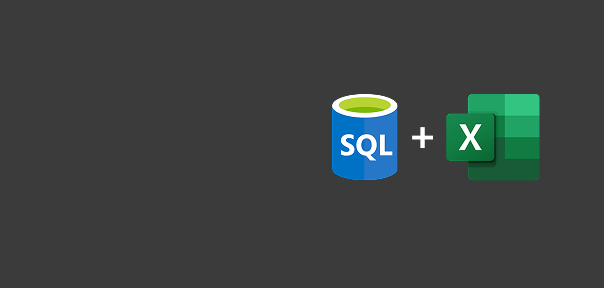

View Course

Included with Pro+ Subscription


View Course

Included with Pro+ Subscription


View Course

Included with Pro+ Subscription


.jpg)
View Course

Included with Pro+ Subscription
.png)
View Course

Included with Pro+ Subscription

View Course

Included with Pro+ Subscription

View Course

Included with Pro+ Subscription
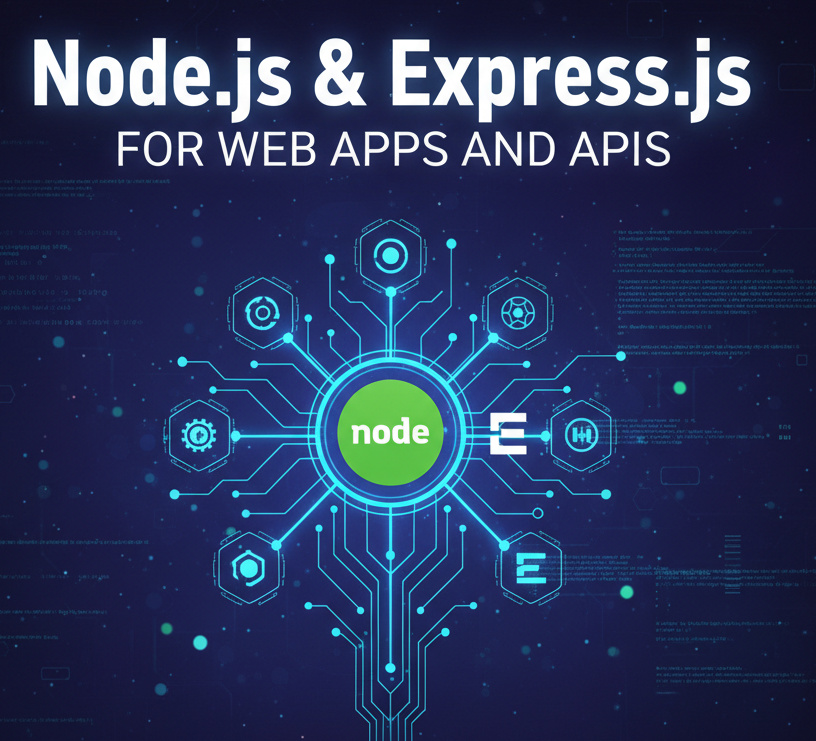
View Course

Included with Pro+ Subscription
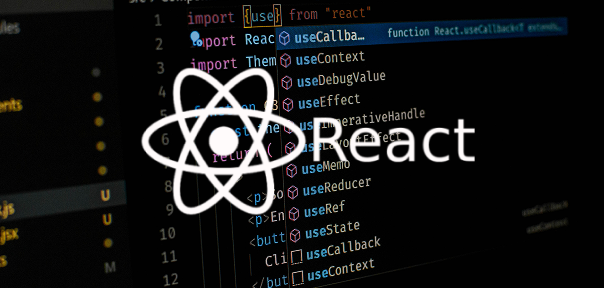
View Course

Included with Pro+ Subscription
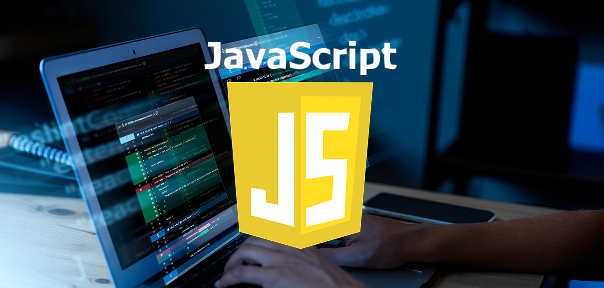
View Course

Included with Pro+ Subscription

View Course

Included with Pro+ Subscription
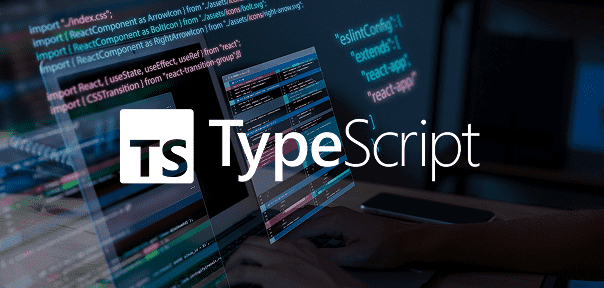
View Course

Included with Pro+ Subscription


View Course

Included with Pro+ Subscription

View Course

Included with Pro+ Subscription
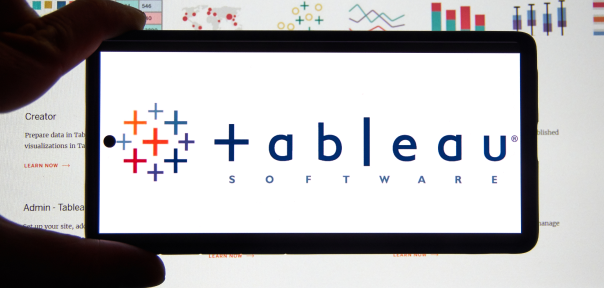
View Course

Included with Pro+ Subscription
.png)
View Course

Included with Pro+ Subscription

View Course

Included with Pro+ Subscription

View Course

Included with Pro+ Subscription

View Course

Included with Pro+ Subscription

View Course

Included with Pro+ Subscription

View Course

Included with Pro+ Subscription
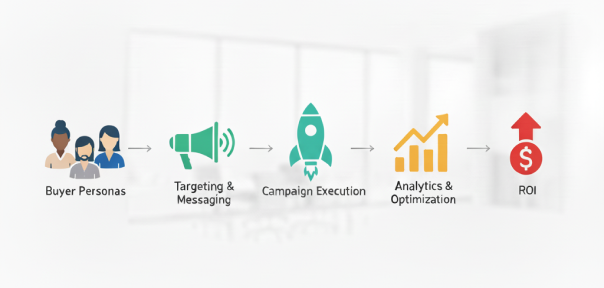
View Course

Included with Pro+ Subscription
.jpg)
View Course

Included with Pro+ Subscription
.jpg)
View Course

Included with Pro+ Subscription
.jpeg)
View Course

Included with Pro+ Subscription
.jpg)
View Course

Included with Pro+ Subscription
.png)
View Course

Included with Pro+ Subscription


View Course

Included with Pro+ Subscription


View Course

Included with Pro+ Subscription


View Course

Included with Pro+ Subscription
.png)
View Course

Included with Pro+ Subscription
.jpg)

.jpg)

.png)

View Course

Included with Pro+ Subscription
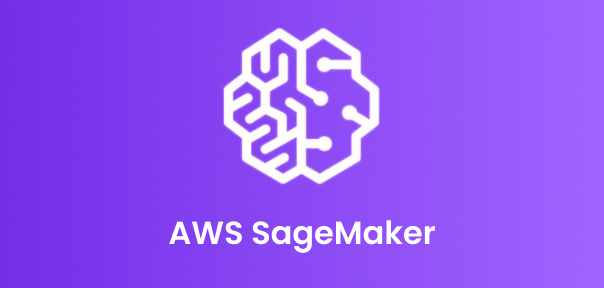

View Course

Included with Pro+ Subscription
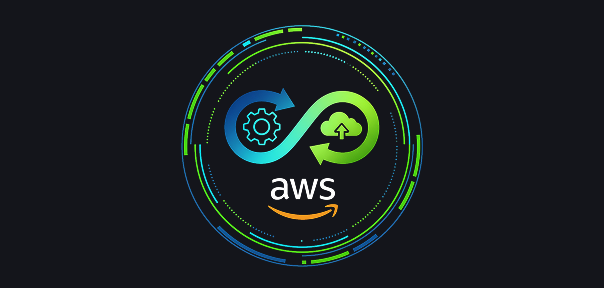
View Course

Included with Pro+ Subscription

View Course

Included with Pro+ Subscription

View Course

Included with Pro+ Subscription
.png)
View Course

Included with Pro+ Subscription
.png)
View Course

Included with Pro+ Subscription
.png)
View Course

Included with Pro+ Subscription
Popular


View Course

Included with Pro+ Subscription

View Course

Included with Pro+ Subscription
.jpg)
View Course

Included with Pro+ Subscription


View Course

Included with Pro+ Subscription


View Course

Included with Pro+ Subscription

View Course

Included with Pro+ Subscription

View Course

Included with Pro+ Subscription

View Course

Included with Pro+ Subscription
AI & Generative AI

View Course

Included with Pro+ Subscription

View Course

Included with Pro+ Subscription

View Course

Included with Pro+ Subscription
.jpg)
View Course

Included with Pro+ Subscription

View Course

Included with Pro+ Subscription


View Course

Included with Pro+ Subscription


Microsoft Courses


View Course

Included with Pro+ Subscription


View Course

Included with Pro+ Subscription


View Course

Included with Pro+ Subscription


View Course

Included with Pro+ Subscription


View Course

Included with Pro+ Subscription


IT & Software
.jpg)
View Course

Included with Pro+ Subscription
.png)
View Course

Included with Pro+ Subscription

View Course

Included with Pro+ Subscription

View Course

Included with Pro+ Subscription

View Course

Included with Pro+ Subscription

View Course

Included with Pro+ Subscription

View Course

Included with Pro+ Subscription

View Course

Included with Pro+ Subscription

View Course

Included with Pro+ Subscription
.png)
View Course

Included with Pro+ Subscription
.png)
View Course

Included with Pro+ Subscription
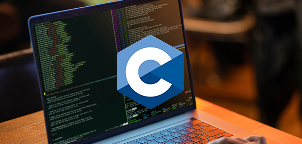
View Course

Included with Pro+ Subscription

View Course

Included with Pro+ Subscription

View Course

Included with Pro+ Subscription

View Course

Included with Pro+ Subscription

View Course

Included with Pro+ Subscription


View Course

Included with Pro+ Subscription

View Course

Included with Pro+ Subscription

View Course

Included with Pro+ Subscription


View Course

Included with Pro+ Subscription


View Course

Included with Pro+ Subscription
 (1).png)
View Course

Included with Pro+ Subscription
Data Science & ML


View Course

Included with Pro+ Subscription

View Course

Included with Pro+ Subscription

View Course

Included with Pro+ Subscription
.png)
View Course

Included with Pro+ Subscription

View Course

Included with Pro+ Subscription

View Course

Included with Pro+ Subscription
Management

View Course

Included with Pro+ Subscription

View Course

Included with Pro+ Subscription

View Course

Included with Pro+ Subscription

View Course

Included with Pro+ Subscription
.jpg)
View Course

Included with Pro+ Subscription
.jpg)
View Course

Included with Pro+ Subscription
.jpeg)
View Course

Included with Pro+ Subscription
.jpg)
View Course

Included with Pro+ Subscription
.png)
View Course

Included with Pro+ Subscription
.png)
View Course

Included with Pro+ Subscription
.png)
View Course

Included with Pro+ Subscription

View Course

Included with Pro+ Subscription
.png)
View Course

Included with Pro+ Subscription
.png)
View Course

Included with Pro+ Subscription
 (1).jpg)
View Course

Included with Pro+ Subscription
.png)
View Course

Included with Pro+ Subscription
Cloud Computing


View Course

Included with Pro+ Subscription


View Course

Included with Pro+ Subscription


View Course

Included with Pro+ Subscription
.png)
View Course

Included with Pro+ Subscription
.jpg)

.jpg)

.png)

View Course

Included with Pro+ Subscription


View Course

Included with Pro+ Subscription

View Course

Included with Pro+ Subscription
.png)



.png)

View Course

Included with Pro+ Subscription



Cyber Security

View Course

Included with Pro+ Subscription

View Course

Included with Pro+ Subscription
.png)
View Course

Included with Pro+ Subscription
.png)
View Course

Included with Pro+ Subscription
.png)
View Course

Included with Pro+ Subscription
Subscribe to Academy Pro+ & get exclusive features
$25/month
No credit card required
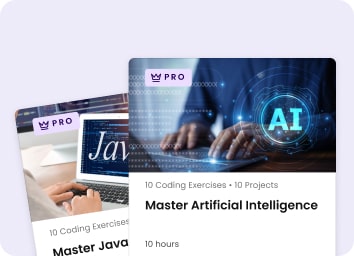
Learn from 40+ Pro courses
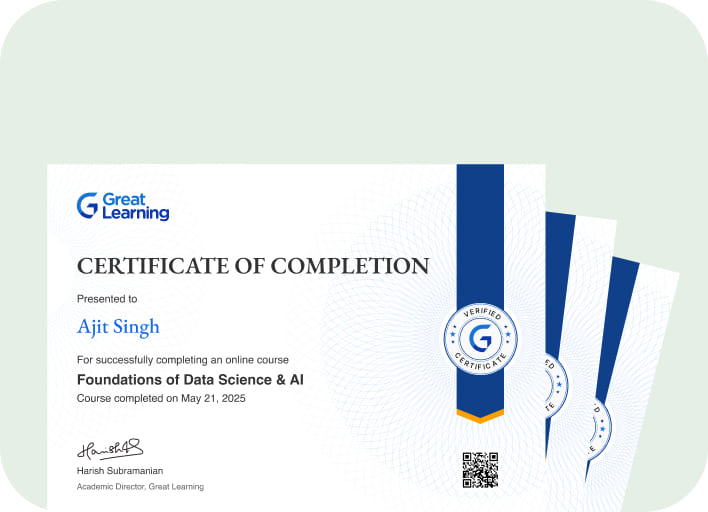
Access 500+ certificates for free
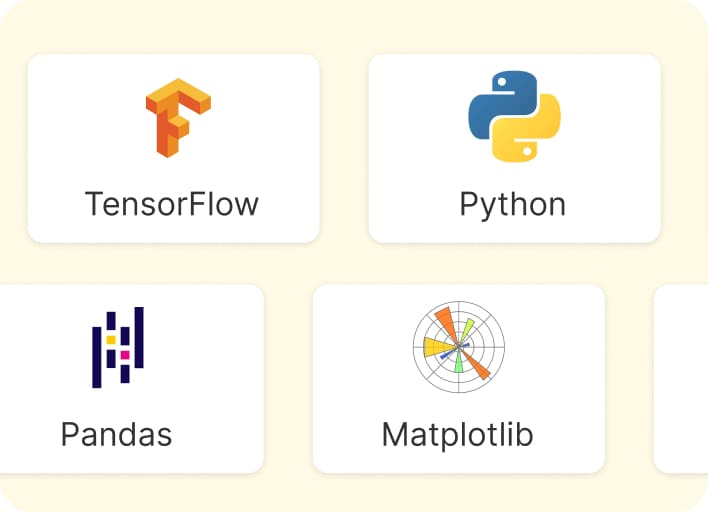
700+ Practice exercises & guided projects
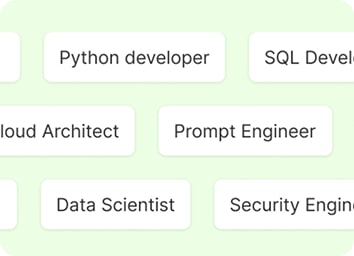
Prep with AI mock interviews & resume builder
Recommended Free Software courses

.jpg)


Similar courses you might like




Relevant Career Paths >
Basics of Object-Oriented Programming
Object-oriented programming (OOP) is a programming paradigm that revolutionized software development by introducing a more structured and modular approach to writing code. It is based on the concept of "objects," which are instances of classes that encapsulate data and behavior. OOP promotes the principles of encapsulation, inheritance, and polymorphism, providing a powerful and flexible way to design and organize code.
At the heart of OOP is the concept of a "class." A class is a blueprint or template for creating objects. It defines the properties (attributes or data members) and methods (functions or behaviors) that the objects of the class will have. For example, if we are building a software system to model cars, a class called "Car" might have attributes like "model," "color," and "speed," as well as methods like "start_engine" and "accelerate."
Encapsulation is a key principle of OOP that involves bundling the data (attributes) and methods that operate on the data into a single unit, i.e., a class. This helps in hiding the internal details of the object and exposing only what is necessary. It enhances the security and maintainability of the code by preventing unauthorized access and modification of the object's internal state.
Inheritance is another crucial concept in OOP that allows a class to inherit the properties and methods of another class. This promotes code reusability and establishes a hierarchy of classes. For instance, a "Sedan" class can inherit from the "Car" class, inheriting its attributes and methods while adding or overriding specific characteristics related to sedans.
Polymorphism, the third pillar of OOP, enables objects of different classes to be treated as objects of a common base class. This facilitates the use of a single interface for various types of objects, making the code more flexible and extensible. Method overriding and method overloading are common examples of polymorphism, allowing a subclass to provide a specific implementation of a method defined in its superclass.
OOP facilitates the modeling of real-world entities in a more intuitive and natural way. It aligns with the human thought process, making it easier for developers to conceptualize, design, and maintain complex systems. Additionally, OOP supports the modular development of software, enabling teams to work on different components concurrently and independently.
One of the primary advantages of OOP is code reuse. Through inheritance, developers can create new classes based on existing ones, inheriting their attributes and behaviors. This reduces redundancy and promotes a more efficient and maintainable codebase.
However, like any paradigm, OOP has its challenges. Creating well-designed class hierarchies and managing relationships between classes can be complex. Additionally, if not implemented carefully, OOP can lead to code that is difficult to understand and maintain.
In conclusion, Object-Oriented Programming is a powerful paradigm that has significantly impacted the way software is developed. It promotes code organization, modularity, and reusability through the concepts of classes, encapsulation, inheritance, and polymorphism. Despite its challenges, OOP remains a cornerstone in modern software engineering, providing a foundation for building robust and scalable applications.







